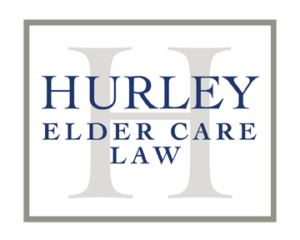Elder Law
Nursing Home Medicaid pays for the majority of the cost of the nursing home for the majority of all Georgia nursing home residents. When we last checked, almost 80% of all nursing home residents in Georgia receiving long-term care (and not short-term rehab) are on Medicaid. Nationwide, Medicaid covers 6 in every 10 nursing home…
Read MoreGeorgia nursing home Medicaid continues to confuse families and professionals. One of the most confusing aspects is how the rules apply to a nursing home resident that is married vs. single. Nursing home Medicaid laws are different for single individuals than for married individuals. In many ways, Medicaid laws are more generous for those…
Read MoreAfter years of a stagnant personal needs allowance (it was stuck at $50/month for many years), Georgia has made increases two years in a row. In 2018, Georgia increased the personal needs allowance to $65. This year, Georgia has increased the amount to $70. This new personal needs allowance went into effect on Monday,…
Read MoreThe Georgia Advance Directive for Healthcare was adopted by the Georgia legislature and put in place by the Department of Human Resources Division of Aging Services on July 1, 2007. It was created to replace the old living will and power of attorney for healthcare. Prior to 2007, Georgians could execute a living will and…
Read MoreHappy New Year! The beginning of the new year usually brings with it changes to Social Security payments as well as the eligibility requirements for Medicaid and benefit amounts for VA Aid and Attendance. This year, the Social Security Administration announced a 2.8% cost-of-living-adjustment (COLA) for those receiving Social Security and Supplemental Security Income…
Read MoreThe recent article in the New York Times, “Too Little Too Late’: Bankruptcy Booms Among Older Americans,” stirred up quite a bit about the financial situation many older adults are facing. As the article points out, many older adults are turning to bankruptcy as a solution to their problems. More Older Adults are Filing for…
Read MoreOne area of Medicaid law that continues to confuse and scare families is the Medicaid “Death Bill,” or known as Medicaid Estate Recovery. Hurley Elder Care Law’s recent blog shares information on how you can avoid the Death Bill.
Read MoreGeorgia has an “income cap” that is currently set at $2,250/month for nursing home Medicaid eligibility. This means that anyone this limit must jump through an extra hoop. Hurley Elder Care Law’s blog explains this extra hoop.
Read MoreMr. Smith was shocked when he was told that his wife could be eligible for Medicaid. Although they have never been wealthy, Mr. and Mrs. Smith always worked decent paying jobs and saved for retirement in their IRAs. How could they be eligible for Medicaid?
Read MoreIt is not illegal to plan for nursing home expenses and to work with the rules given by our federal and state government to access available resources. It is, however, illegal to hide assets from the government in order to qualify for Medicaid. The asset plans created by our firm involve complete disclosure to DFCS…
Read MoreSubscribe to our blog and monthly newsletter.













